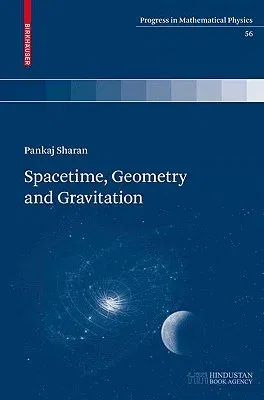This is an introductory book on the general theory of relativity based
partly on lectures given to students of M.Sc. Physics at my university.
The book is divided into three parts. The ?rst part is a preliminary
course on general relativity with minimum preparation. The second part
builds the ma- ematical background and the third part deals with topics
where mathematics developed in the second part is needed. The ?rst
chapter gives a general background and introduction. This is f- lowed by
an introduction to curvature through Gauss' Theorema Egregium. This
theorem expresses the curvature of a two-dimensional surface in terms of
intrinsic
quantitiesrelatedtothein?nitesimaldistancefunctiononthesurface.Thestudent
isintroducedtothemetrictensor, Christo?elsymbolsandRiemanncurvaturet-
sor by elementary methods in the familiar and visualizable case of two
dimensions. This early introduction to geometric quantities equips a
student to learn simpler topics in general relativity like the Newtonian
limit, red shift, the Schwarzschild solution, precession of the
perihelion and bending of light in a gravitational ?eld. Part II
(chapters 5 to 10) is an introduction to Riemannian geometry as - quired
by general relativity. This is done from the beginning, starting with
vectors and tensors. I believe that students of physics grasp physical
concepts better if they are not shaky about the mathematics involved.

